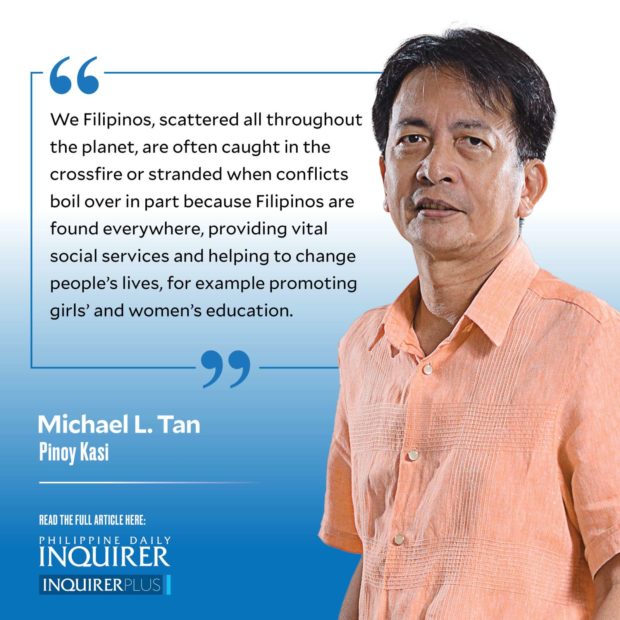9/11
There’s something about commemorative dates that reduce wars to a flash attack, quick and brutal. Think of the US atomic bombs dropped on Hiroshima (Aug. 6, 1945) and Nagasaki (Aug. 9, 1945). The Japanese attack on Pearl Harbor (Dec. 7, 1941) and the four terrorist attacks, with the greatest casualties on the Twin Towers in New York, now often referred to simply as 9/11. The year was 2001 and so we now observe its 20th anniversary.
In an age of gaming, we think of attacks and counter-attacks, of retaliation. After 9/11 came the “war on terror,” with this script: America was attacked and America retaliated against the terrorists.
Article continues after this advertisementThe actual sequence of events is much more complicated. We like to think that after World War II we’ve had relative peace for some 70 years now but there have been many conflicts, taking a great toll on lives and destruction.
We Filipinos, scattered all throughout the planet, are often caught in the crossfire or stranded when conflicts boil over in part because Filipinos are found everywhere, providing vital social services and helping to change people’s lives, for example promoting girls’ and women’s education.
The kind of work we Filipinos do is incredibly varied. I read about a Filipino who was working in Afghanistan when the government fell last month and who was lucky to have been evacuated. In a newspaper interview, he talked about how he would miss Afghans, who he described as much like Filipinos, always jovial and joking. He worked as a security dog handler, and said, too, that he was going to miss the dog assigned to him.
Article continues after this advertisementHow many more stories do our overseas workers have, some staying on even at the height of conflicts?
Afghanistan was all over the headlines last month, the government falling before the deadline set by US President Joe Biden for withdrawing their troops in America’s longest overseas war.
Yet many are unaware of the link between conflicts in Afghanistan and 9/11. In 1979, the Soviets invaded Afghanistan in support of a communist government that had come under attack. The US retaliated by funding mujahideen (those who engage in jihad or holy war to topple the government). The Russians withdrew from Afghanistan in 1989, after the fall of the Soviet Union but by then, Afghanistan had become a major refuge and training area for all kinds of mujahideen forces from all over the world, including the Philippines.
Blowback is the term used to refer to unintended consequences coming out of armed conflicts. That includes the confusing changes in political configurations and alliances. In the latest episode of Afghanistan’s long conflict, the government is now run by the much-dreaded Taliban but wait, there is talk that the Taliban are not the bad guys anymore, not too bad anyway, compared to other rebels in Afghanistan worse than al-Qaida.
We Filipinos need to pay more attention to contemporary international events and make the connections with these “conflicts” and wars.
Shortly after 9/11, the US Congress passed a new law, the Authorization for the Use of Military Force (AUMF), allowing “appropriate force against those nations, organizations, or persons [the President] determines planned, authorized, committed, or aided the terrorist attacks that occurred on September 11, 2001.”
Only one member of the US Congress, California Rep. Barbara Lee, voted against the bill, while 420 voted for approval. Lee was a lonely voice calling on her colleagues “to think through the implications of our actions today so that this does not spiral out of control.”
In the Netflix documentary “The Turning Point,” Lee says AUMF has been used 41 times in 19 countries, including domestic spying in the US and the long imprisonment and maltreatment of suspected terrorists in Guantanamo Bay. I looked up information on where the AUMF was used and was not surprised to find out the Philippines was one of the countries.
“The Turning Point” includes interviews with an elderly and a young Taliban member, pointing out that the US had in fact created terrorists with their military operations.
In recounting her sole vote against the AUMF, Lee says she was greatly influenced by the homily of the Rev. Nathan Baxter during a memorial service at Washington’s National Cathedral for the 9/11 victims. Lee joined Americans in mourning the deaths from the attacks but had this simple appeal: “We must not become the evil we deplore in the search for justice.”

















